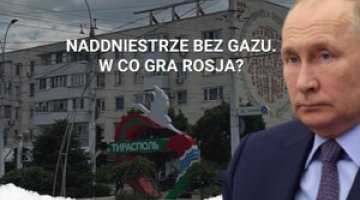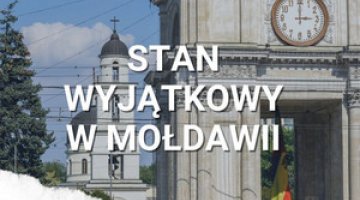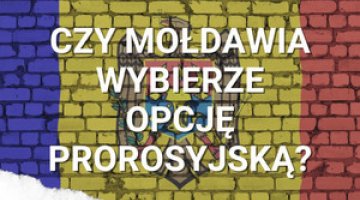Igor Dodon has won the presidential election in Moldova
On 13th November the runoff of the direct presidential election was held in Moldova (previous practice, beginning after direct presidential elections in 1996 saw the head of state elected by parliament). Igor Dodon, the leader of the pro-Russian Party of Socialists of the Republic of Moldova (PSRM) was announced the winner, with 52.11% of the vote. His rival, Maia Sandu, the leader of the pro-European opposition party Action and Solidarity (PAS) won 47.89% of the vote. Voter turnout, though rather low (53.45%), was higher than in the first round of voting (49.18%).
To date there have been no reports of serious violations of the election process. Nevertheless, observers have pointed to a shortage of ballots in polling stations abroad. According to Moldovan regulations, each of those places could receive a maximum of 3,000 ballots from the Central Electoral Commission. As a result, in London, Paris, Bucharest and Moscow many Moldovans were de facto disenfranchised.
Commentary
- Although Igor Dodon is widely seen as a pro-Russian candidate, support for him from Moscow was much less ostentatious for the last several months than it had been before the election in 2014. Many factors point to the fact that he no longer enjoys the same level of confidence from the Kremlin. In Russia Dodon is probably more and more perceived, as was formerly the case with President Vladimir Voronin, as a politician who uses pro-Russian rhetoric above all in order to secure the vote of the electorate, but is not genuinely interested in close co-operation with Russia.
- Despite Igor Dodon’s pro-Russian rhetoric, it should not be expected that Moldova will make a clear turn to Moscow in the near future. The competences of the president in Moldova, which is a parliamentary republic, are rather limited. He cannot decide to dissolve parliament independently, to freely appoint candidates for the position of prime minister or even block inconvenient laws (the presidential veto may be overturned by a simple majority of votes). However, one of the president’s key competences is to organise referendums. During his electoral campaign Dodon declared he was prepared to hold a referendum regarding the termination of the Moldova-EU Association Agreement. However, his anti-EU rhetoric grew weaker just ahead of the runoff. At present Dodon states that he will not seek to terminate but rather to modify the agreement (particularly the economic part of the DCFTA) to prevent the agreement from hampering, in his opinion, trading relations with Russia.
- In the immediate future the issue of establishing a federal state of Moldova and Transnistria will probably become of the fundamental questions in the country’s political life—Dodon emphasised this issue in his electoral campaign and this lies in the interest of Russia. For the time being, though, this scenario is rather unlikely, in part due to the president’s infinitesimal competences in this area.
- Dodon’s victory is in the interest of Vlad Plahotniuc, Moldova’s richest oligarch who currently controls the parliamentary majority and dominates the domestic political scene. Despite his pro-Russian views and formally anti-oligarchic rhetoric, many factors point to Dodon’s links to Plahotniuc (e.g. in terms of business) and that he is controlled by Plahotniuc, at least partially. What is also important is the fact that Dodon (unlike his rival – Maia Sandu) comes from the establishment and he is interested (despite formal ideological differences) above all in maintaining the existing clan-oligarchic system in the country. In the short term Dodon’s victory will therefore not pose a serious threat to Plahotniuc’s power (particularly given the president’s symbolic competences); in fact it will strengthen his influence
- The victory of the pro-Russian Dodon will also allow Plahotniuc to mobilise pro-European voters with the slogan of the growing threat of Russian influence, and to shift public debate from the issue of the oligarchisation of political life back to geopolitical questions. Faced with the mounting importance of pro-Kremlin circles, Plahotniuc (who has real power in Moldova) will be able to present himself in the West as the only politician who can prevent Moldova from falling into the gravitational pull of Moscow’s influence (and also as a politician genuinely blocking the federalisation of the country, which Dodon is promoting). Dodon’s success will also enable Plahotniuc to renounce the widespread accusation that he is ‘capturing the Moldovan state’ for himself (since the leader of a rival party holds the position of the president). Furthermore, it will also be possible to attribute the problems with introducing reforms foreseen in the Association Agreement (and uncomfortable for the oligarch because they may weaken his influence) to resistance from the pro-Russian president.
- In the West Plahotniuc would be able to present the unexpectedly high percentage of the vote for Maia Sandu (given the funding spent on her electoral campaign, the relatively small and young base of her party and the negative campaign she had to face) as a result of his effort to support the pro-European candidate (the fact that Marian Lupu, the leader of the Democratic Party of Moldova, funded by the oligarch, withdrew from the election to the advantage of Maia Sandu will be mentioned as evidence corroborating this thesis).
- It cannot be ruled out that demonstrations against the result of the election will be held in the coming days. However, it should not be expected that any possible protests will be large or effective. The shortage of ballots has led to spontaneous protests by Moldovans in front of certain polling stations abroad. A small group of protesters also held demonstrations at night in front of the building of the Central Electoral Commission. At present the anti-government opposition gathered around Sandu is collecting signatures for a petition to recall the head of the Central Electoral Commission and the foreign minister (both institutions were responsible for the organisation of voting aboard. Sandu’s followers point out that a slight difference of ballots cast for Dodon and Sandu respectively (approximately 70,000) might have changed the result of the election. They also draw attention to the fact that an important number of ballots (approximately 17,000) were cast by Moldovans residing in Transnistria (mostly supporting Dodon) for whom transport to polling stations was organised.
- Dodon’s victory will strengthen the Party of Socialists of the Republic of Moldova politically, which will be quite important in the context of the parliamentary election planned for the end of 2018. The presidential campaign having ended, the divergences in the pro-European opposition will widen between Maia Sandu’s PAS and the Dignity and Truth Platform Party led by Andrei Nastase. Both parties are seeking support from the same group of voters and it should be expected that they will be in competition in the electoral campaign.




